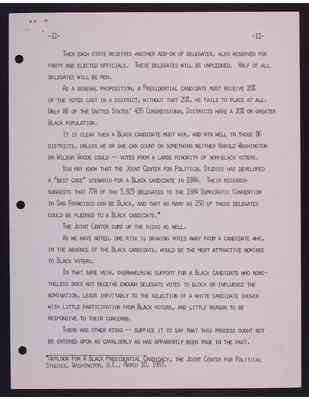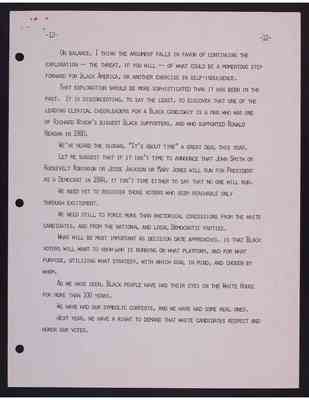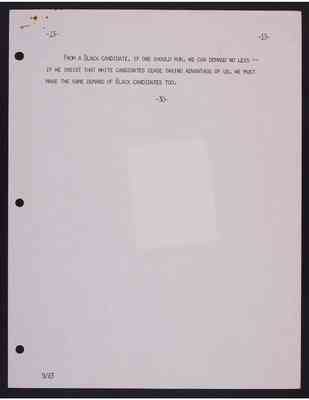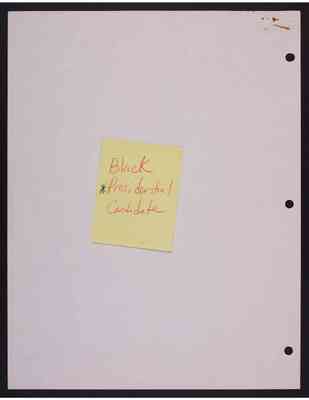Pages
11
-11-
Then each State receives another add-on of delegates, also reserved for party and elected officials. These delegates will be unpledged. Half of all delegates will be men.
As a general proposition, a Presidential candidate must receive 20% of the votes cast in a district; without that 20%, he fails to place all. Only 86 of the United States; 435 Congressional Districts have a 20% or greater Black population.
It is clear then a Black candidate must win, and win well in those 86 districts, unless he or she can count on something neither Harold Washington or Wilson Goode could - votes from a large minority of non-black voters.
You may know that the Joint Center for Political Studies has developed a "best case" scenario for a Black candidate in 1984. Their research suggests that 778 of the 3,923 delegates to the 1984 Democratic Convention in San Francisco can be Black, and that as many as 250 of those delegates could be pledged to a Black candidate.*
The Joint Center sums up the risks as well.
As we have noted, one risk is drawing votes away from a candidate who, in the absence of the Black candidate, would be the most attractive nominee to Black voters.
In that same vein, overwhelming support for a Black candidate who nonetheless does not receive enough delegate votes to block or influence the nomination, leads inevitably to the selection of a white candidate chosen with little participation from Black voters, and little reason to be responsive to their concerns.
There are other risks - suffice it to say that this process ought not be entered upon as cavalierly as has apparently been true in the past.
* Outlook for a Black Presidential Candidacy, The Joint Center for Political Studies, Washington, D. C., March 10, 1983.
12
-12-
On balance, I think the argument falls in favor of continuing the exploration - the threat, if you will - of what could be momentous step forward for Black America, or another exercise in self-indulgence.
That exploration should be more sophisticated than it has been in the past. It is disconcerting, to day the least, to discover that one of the leading clerical cheerleaders for a Black candidacy is a man who was one of Richard Nixon's biggest Black supporters, and who supported Ronald Regan in 1980.
We've heard the slogan, "It's about time" a great deal this year.
Let me suggest that if it isn't time to announce that John Smith or Roosevelt Robinson or Jesse Jackson or Mary Jones will run for President as a Democrat in 1984, it isn't time either to say that no one will run.
We need yet to register those voters who seem reachable only through excitement.
We need still to force more than rhetorical concesssions from the white candidates, and from the national and local Democratic parties.
What will be most important as decision date approaches, is that Black voters will want to know who is running on what platform, and for what purpose, utilizing what strategy, with which goal in mind, and chosen by whom.
As we have seen, Black people have had their eyes on the White House for more than 100 years.
We have had our symbolic contests, and we have had some real ones.
Next year, we have a right to demand that white candidates respect and honor our votes.



